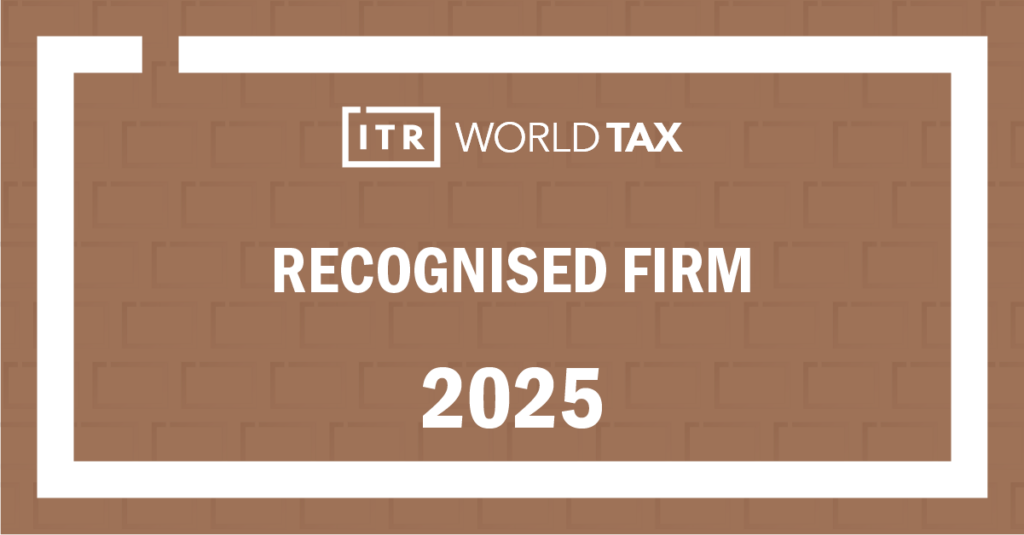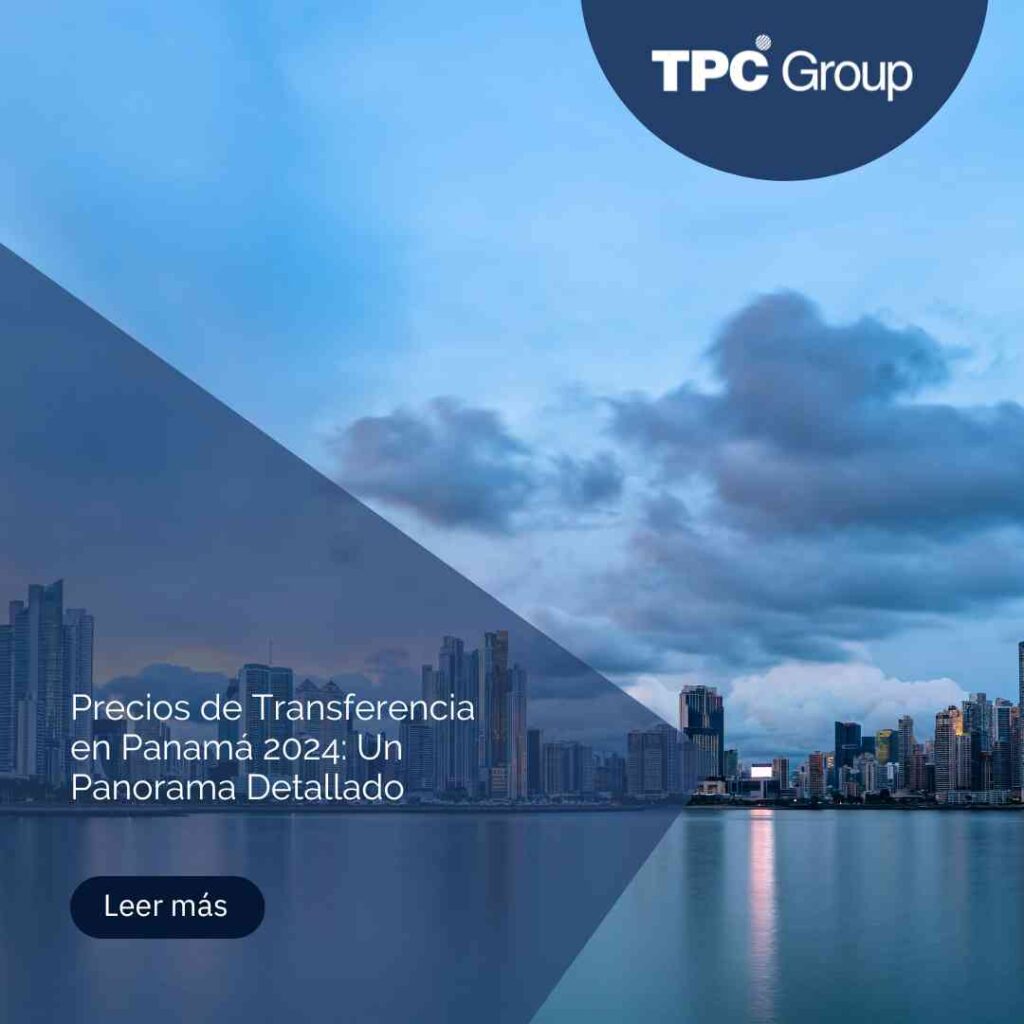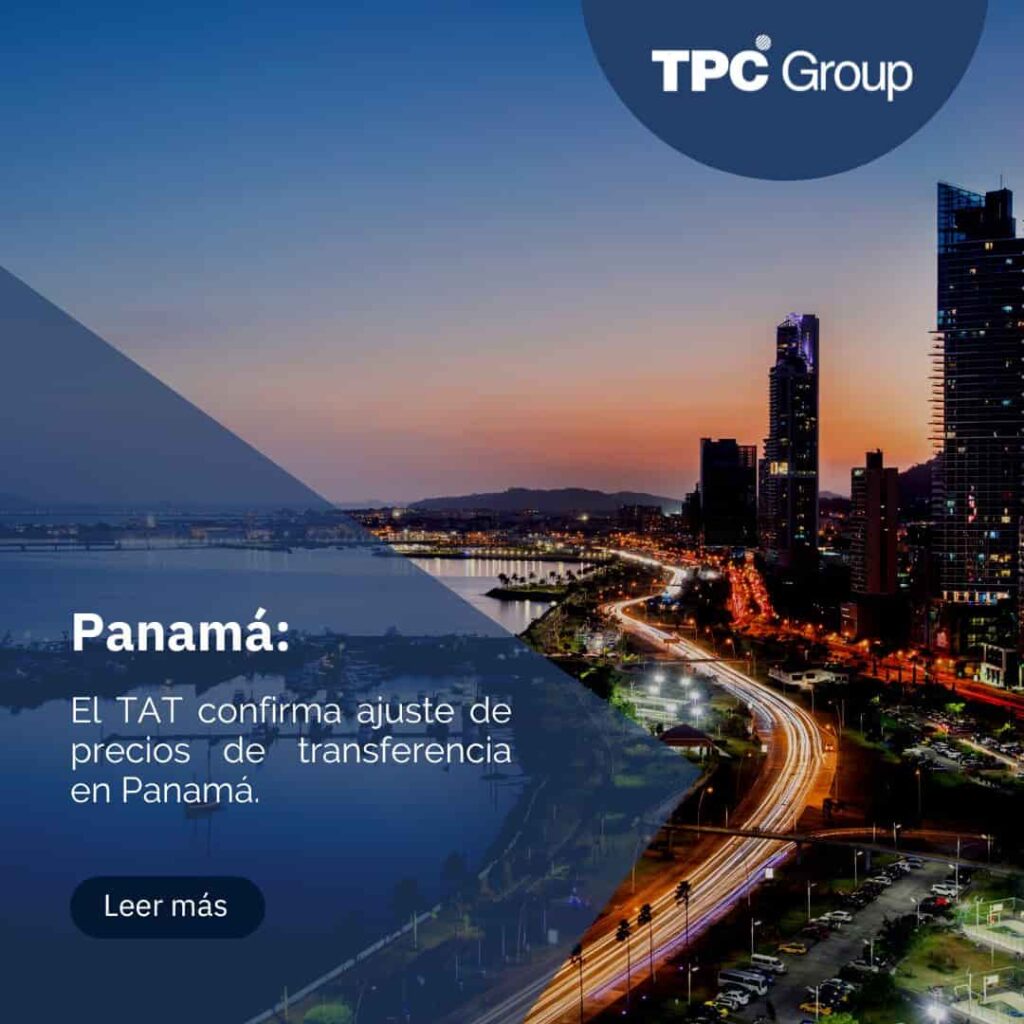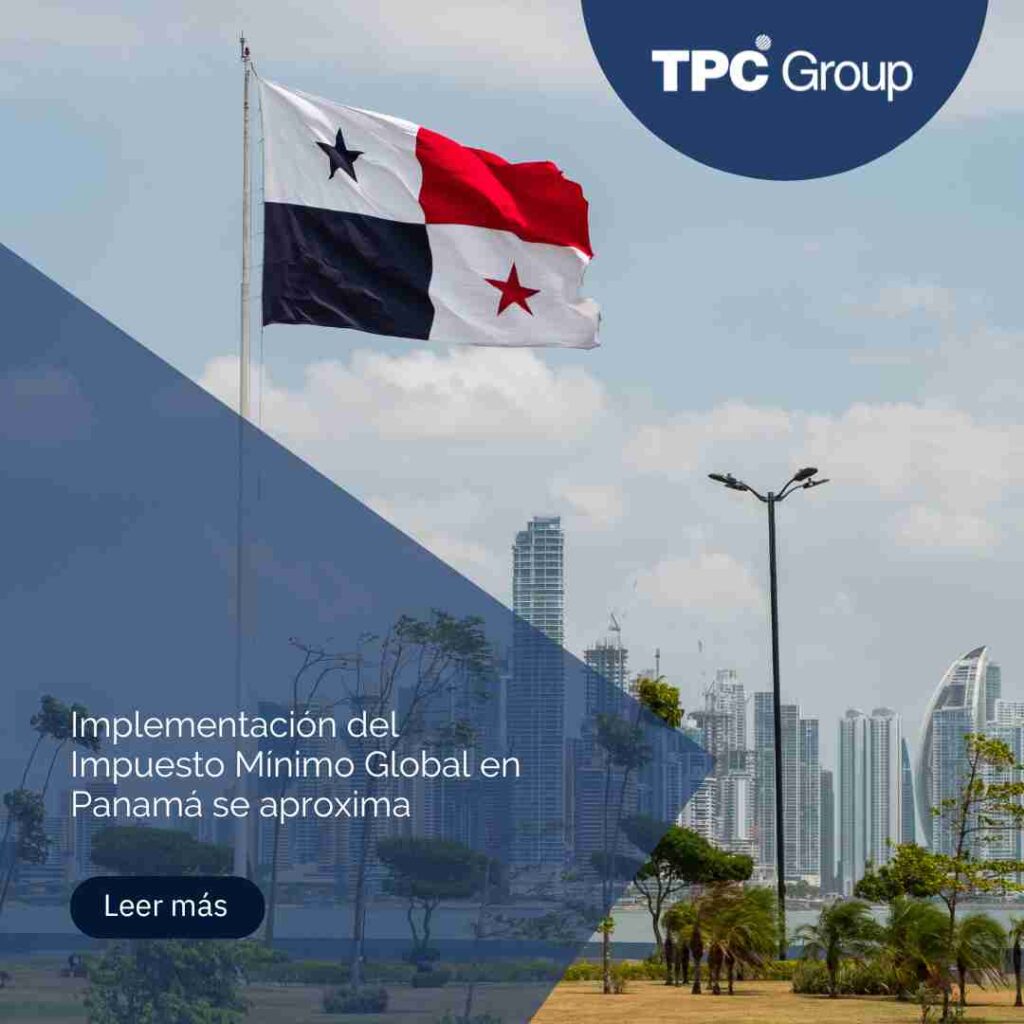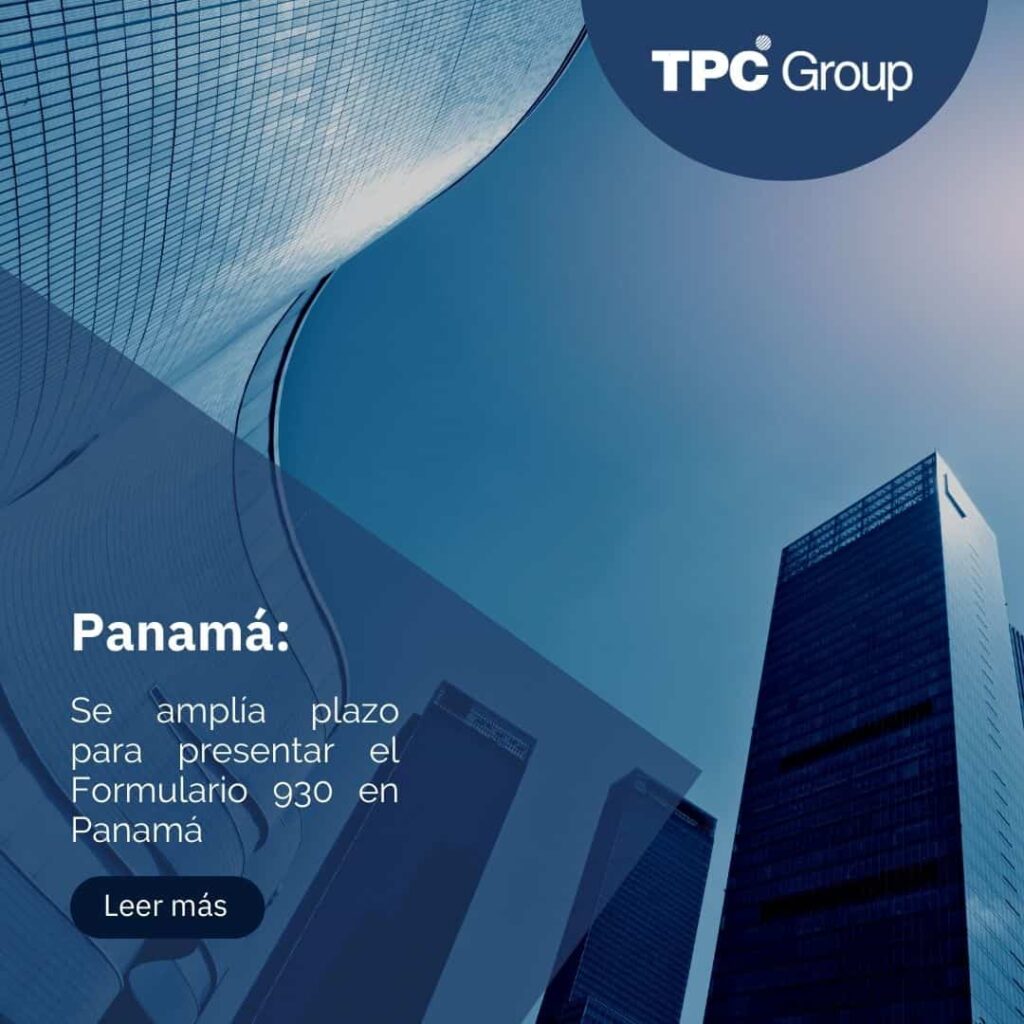Concepto y Regulación en Panamá
Las obligaciones de Precios de Transferencia en Panamá se encuentran establecidas desde el año 2011, cuando se requería contar con un estudio en dicha materia siempre que se realizarán transacciones con partes relacionadas domiciliadas en países con los cuales Panamá hubiese firmado un Convenio para Evitar la Doble Imposición.
No obstante, a partir de la promulgación de la Ley N°52 de 2012, se extendió el ámbito de aplicación a los contribuyentes que realizan transacciones con partes vinculadas en el exterior, aún estas no domicilien en un país con el cual Panamá haya suscrito el Convenio antes señalado.
Los precios de transferencia en Panamá tienen como base normativa el Capítulo IX del Código Fiscal de Panamá, posteriormente modificado por la Ley Nº52 de 2012 y el Decreto Ejecutivo N°390 de 2016, con el cual se reglamenta la materia, así como el Decreto Ejecutivo N°46 de 2019.
Este último resulta de gran importancia, pues establece el marco regulatorio del Reporte País por País, con lo cual Panamá se sigue alineando a lo señalado por la Organización para la Cooperación y Desarrollo Económico (OCDE) en sus acciones del Plan BEPS (Base and Erosion and Profit Shifting).
Principio de Libre Competencia
También denominado principio de «Arm ‘s Length«, el principio de plena competencia se erige como pilar fundamental de los precios de transferencia.
La normativa de Panamá define el principio de plena competencia como las operaciones que realicen los contribuyentes con partes relacionadas deberán valorarse de acuerdo con el principio de libre competencia, es decir, los ingresos ordinarios y extraordinarios y los costos y deducciones necesarios para realizar esas operaciones deberán determinarse considerando el precio o monto que habrían acordado partes independientes bajo circunstancias similares en condiciones de libre competencia.
En el 2018, se añadió que las entidades que posean una «licencia de sede de empresa multinacional» deberán reportan en la Declaración Jurada el ISR, siguiendo el principio de plena competencia.
Dicho principio se encuentra amparado en el artículo 762-A del Código Fiscal.
Ámbito de Aplicación de los Precios de Transferencia en Panamá
El Código Fiscal Panameño en el artículo 7 de la Ley N° 52-2012 señala en su cuerpo normativo, a las operaciones con partes vinculadas situadas en otra jurisdicción, como aquellas sujetas al ámbito de precios de transferencia.
Esto siempre que dichas operaciones sean consideradas como ingreso, costo o deducción en cuanto a su impuesto sobre la renta.
Parte Relacionada en Panamá: Definición
Acorde al Artículo 762-C, del Código Fiscal de Panamá, se entiende que dos o más personas se consideran partes relacionadas cuando:
- Una de ellas se involucre, ya sea de manera directa o indirecta, en la administración, control o capital de la otra.
- Una persona o grupo de personas participe, de acuerdo a lo señalado en el párrafo anterior, en dichas personas.
Asimismo, también se considerará parte relacionada a un establecimiento permanente, a la oficina principal u otros establecimientos permanentes de la misma, así como las personas indicadas líneas anteriores y sus establecimientos permanentes.
Métodos de Precios de Transferencia en Panamá
Existen 5 métodos en la legislación de precios de transferencia de Panamá, a fin de poder analizar el valor pactado en operaciones realizadas entre partes relacionadas. De acuerdo al Artículo 762-F del Código Fiscal, estos son los siguientes:
- Método de precio comparable no controlado.
- Método de costo adicionado.
- Método de precio de reventa.
- Método de partición de utilidades.
- Método de margen neto de la transacción.
Cabe considerar que la mencionada norma señala que los últimos dos métodos deberán ser utilizados en la medida que haya una mayor complejidad en las operaciones o falta de información, de tal manera que no se haya podido aplicar primero los tres primeros métodos señalados.
Declaración y Documentación a Presentar
La legislación panameña en precios de transferencia prevé para aquellos contribuyentes obligados, la presentación de una declaración o informe de precios de transferencia y un estudio técnico con información del contribuyente y de ser el caso el del grupo empresarial al que este pertenezca.
Asimismo, a partir del 2019 en el Decreto Ejecutivo N° 46 se ha regulado la presentación del Reporte País por País o CbC Report.
-
Informe de Precios de Transferencia
Conforme lo señala el Artículo 8 de la Ley N°52-2012, los contribuyentes que realicen transacciones con partes relacionadas presentarán un informe de precios de transferencia cada año.
La presentación será hasta máximo seis meses posteriores a la fecha de cierre del período fiscal, a través del Formulario N°930.
En el año 2018, se modificó el Formulario N°930 a partir de la publicación de la Resolución N°201-1937. En ese sentido, destacan las características:
- Se debe completar un anexo para las transacciones de intangibles como regalías, propiedad intelectual, marcas comerciales, entre otros.
- El contribuyente debe revelar si se encuentra en un régimen fiscal o zona económica especial.
- Si se ha recurrido a un método basado en márgenes de utilidad, es necesario revelar el nombre de las compañías seleccionadas como comparables, los periodos fiscales de las compañías comparables utilizadas, así como el país de residencia.
No se podrán solicitar prórrogas de tiempo ni rectificativas sobre el Informe 930 de precios de transferencia. En caso de haber presentado la Declaración Informativa 930 con errores, deberá solicitar su anulación a través de una nota explicativa y quedará sujeta a criterio de la DGI.
-
Estudio de Precios de Transferencia
De acuerdo al artículo 9 de la Ley N°52-2012, así como el Artículo 11 del Decreto Ejecutivo N°390 de 2016, las personas que se encuentren obligadas a presentar la declaración o informe antes señalado deberán contar con un estudio de precios de transferencia, a fin de poder verificar el análisis de valoración de las operaciones entre partes relacionadas.
Este informe que se podría denominar como «Reporte Local«, pues está enfocado en documentación específica del contribuyente y sigue los lineamientos señalados en la Acción 13 de BEPS, sólo deberá presentarse a requerimiento de la Dirección General de Impuesto (DGI).
El plazo para ello será de 45 días, contados a partir de la notificación del requerimiento.
Asimismo, en caso de aquellos contribuyentes que formen parte de un grupo empresarial y realicen actividad económica entre sí se deberá presentar información respecto a este, tal como una descripción general de la estructura organizativa, jurídica y operativa del grupo, entre otros.
Esto también acorde a los lineamientos de la acción antes señalada para lo que respecta al «Reporte Maestro«.
-
Reporte País por País
Mediante Decreto Ejecutivo N°46 de 2019, se establece el marco regulatorio del Reporte País por País.
De acuerdo al Artículo 2 del Decreto antes señalado, estarán obligados a presentar este reporte:
- La Casa Matriz Última de un grupo multinacional cuyos ingresos consolidados en un periodo fiscal sean mayores a 750,000,000 de euros o su equivalente en balboas, siempre que resida fiscalmente en Panamá.
Entre la información a reportar se tiene los ingresos, ganancias o pérdidas antes de impuestos, impuesto a la renta pagado y devengado, capital declarado, activos intangibles, identificación de cada entidad integrante, entre otros; respecto a las jurisdicciones en la que opera el grupo multinacional.
Según el artículo 5 del Decreto Ejecuto N°46-2019, el referido reporte deberá ser presentado dentro del plazo de 12 meses siguientes a la fecha de cierre del periodo fiscal correspondiente y será entregado en formato «XML Schema«, de acuerdo a las regulaciones de DGI.
Sanciones relacionadas a Precios de Transferencia en Panamá
De acuerdo al artículo 8 de la Ley N°52-2012, la no presentación de la declaración de precios de transferencia mediante el Formulario N°930 conlleva a una sanción ascendente a 1% sobre el monto total bruto de las operaciones con partes relacionadas, con un tope máximo de B/.1,000,000.
En cuanto a la falta de estudio de precios de transferencia, la norma no señala una multa o sanción específica para esta infracción; no obstante, se podrá sancionar de acuerdo a lo señalado en el Artículo 756 del mencionado Código, respecto a no entregar documentación relacionada a la aplicación del impuesto o hacerla fuera del plazo.
Esta se sanciona con una multa que va de B/.1,000.00 a B/.5,000.00, la primera vez, y con multas de B/.5,000.00 a B/.10,000.00 en caso de reincidencia.
Asimismo, se podrá ordenar el cierre del establecimiento por 2 días, la primera vez y hasta 10 días en caso de reincidencia. Si decide persistir en el incumplimiento, se impondrán 15 días de clausura para el establecimiento en cuestión.
Lineamientos OCDE
De acuerdo al tercer párrafo del artículo 7 de la Ley N°52-2012, se consideran como criterio interpretativo a las Guías sobre Precios de Transferencia para las Empresas Multinacionales y las Administraciones Fiscales aprobadas por el Consejo de la OCDE.



